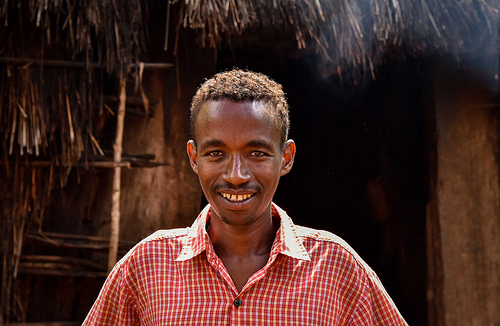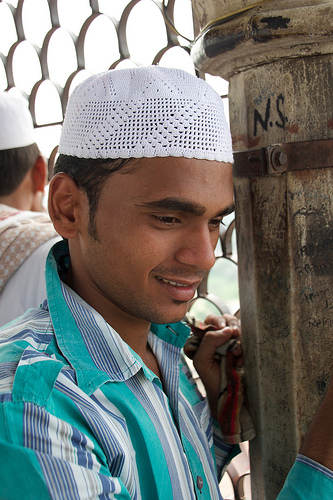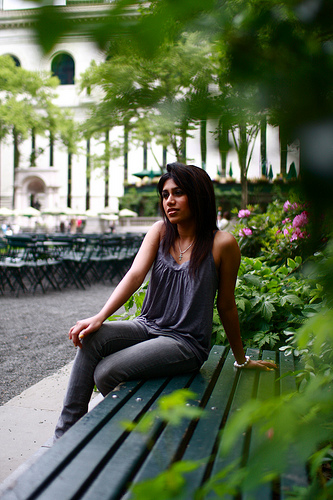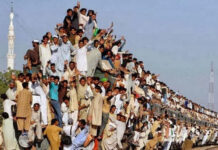Mongolia is a country with a long history of violence, militarism and colonialism. For centuries its armies brought war and imperialism to the people of Asia, the Middle East and Europe. But the new generation are spearheading change in the quickly modernising rainbow nation.
Our North East Asia correspondent was in the capital, Ulaanbaatar, last week to speak to youth in its hip inner-city. We asked them the same question:
“How do you feel about your country’s racist past?”


Altan, 19:
“I think about it every day. I am very anti-war, I am against militarism of any kind. I think the more we can do to show other people of the world just how sorry we are, the better, but our country still has a long way to go.”


Chinua, 23:
“I know it was hundreds of years ago, maybe more, I don’t know, but I still feel like I hold privilege passed down to me by my ancestors who stole land and wealth from people in other countries who never did anything to harm them. I mean, they were living peacefully amongst themselves, and we thought we had the right to go in and take whatever we wanted. We don’t do that any more, but we still have a long way to go.”
Gerial, 20:
“I can’t imagine what it must have been like to live in those days with such a backward mindset. I am glad I live in the current year, with all the rights we have won. We still have a long way to go, but I think Mongolia is on the right path to being a more tolerant society. With more tolerance, I think we can ensure that something like that never happens again.”


The government of Mongolia has responded to the open-minded sentiment of the new, progressive generation emerging into its society, by enacting a number of proactive initiatives designed to help the people of Mongolia come to terms with their brutal past. The most attention-grabbing of these has been the banning of all horse riding and use of bow and arrow in the country. Given that Mongolian bowmen/horsemen were the prime weapon at the disposal of the Khans who slaughtered their way across the Asian continent, Mongolians have become sharply aware in recent years how such an activity can be seen as a glorification of conquest to their near and distant neighbours.
According to a Mongolian government spokesperson:
“We have to understand that for a Mongolian, riding a horse or using a bow and arrow for ‘fun’ is not a neutral act; it is a deeply political act. Particularly for people whose lands we formerly conquered – which is pretty much everybody – we have to understand that what comes naturally to many Mongolians can actually be perceived as deeply hurtful by people of diverse backgrounds.”
Unfortunately there has been some backlash against the government initiative, with some older Mongolians maintaining that these barbaric practices are a part of their culture. The video below shows Mongolian neonazis holding one of their racist rallies. (The XYZ understands that some readers may find this video offensive.)
Although this shows that Mongolia still has a long way to go, the government has been forward thinking in tackling this issue of lingering bigotry:
“We have launched an education campaign across the nation to encourage our citizens to think less problematically about their past. This is primarily conducted in schools and kindergartens, but we are also working to spread this message through installations in libraries, museums and festivals. Obviously, some Mongolians who feel that the modern world has left them behind will cling to their bows, arrows and religion, but once that generation dies out we can live in a more tolerant and open Mongolia.”
This more tolerant and open Mongolia can already be seen in the faces of new Mongolians. Since 2015 the country has opened its borders to hundreds of thousands of migrants from Africa, Pakistan and Afghanistan who are fleeing the chaos of the Syrian Civil War. Young Altan tells us:
“I think we have a duty to take in refugees from these countries because of our legacy of interfering in their affairs many years ago. We have to accept that our invasion of former peaceful regions means we have to widen our sense of collective identity. I don’t think I have any more right to call myself a Mongolian than any of these new arrivals. I am very much looking forward to getting to know more new Mongolians. Also, I think Pakistani Mongolian women are hot, so, yeah.”
It’s your XYZ.










